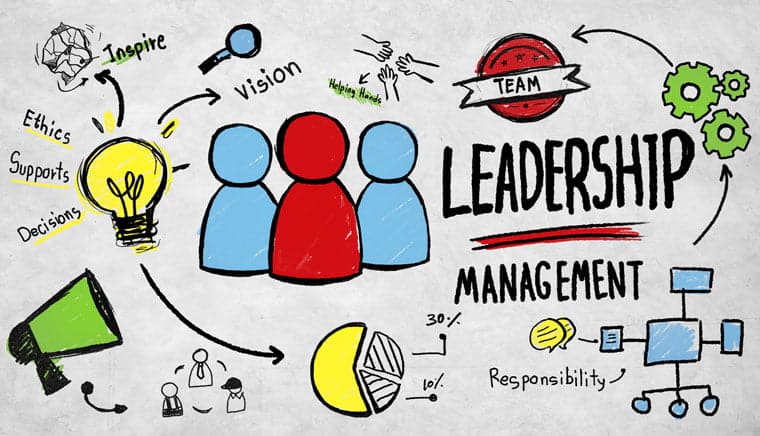Introduction
Leadership development programs have evolved as a critical stepping stone for individuals looking to climb the management ladder in the ever-changing landscape of the business process outsourcing (BPO) industry. This article examines the importance of leadership development programs in BPOs, focusing on how they help both individuals and businesses.
Learning About Leadership Development Programs

What Do Leadership Development Programs Entail?
Leadership development programs are systematic initiatives that aim to identify, nurture, and improve the leadership qualities of people inside an organization. In the context of BPOs, these programs focus on properly educating individuals to take on managerial roles.
The Value of Leadership in BPOs
Effective leadership is critical in the fast-paced environment of BPOs. Leaders are critical in managing teams, meeting goals, and guaranteeing client happiness. As a result, investing in leadership development is a smart move for BPO firms.
The Advantages of BPO Leadership Development Programs
Improvement of Skills
Employees benefit from leadership development programs in areas such as communication, problem-solving, and decision-making. These abilities are essential for efficient management in a BPO scenario.
Enhanced Employee Morale
When employees see that their company is invested in their development, it enhances morale and job satisfaction. As a result, production increases, and attrition rates decrease.
Retention of Talent
BPOs frequently experience significant attrition rates. Leadership development programs assist in the identification and retention of outstanding talent, lowering the expense and disruption associated with staff turnover.
The Elements of a Successful Leadership Development Program
Workshops and training
The core of these programs are hands-on training sessions and workshops. They give participants practical insights into leadership qualities and how to use them in real-world circumstances.
Coaching and mentoring
Experienced leaders serve as mentors, providing direction and support to program participants. Individuals can improve their leadership skills by receiving regular feedback and coaching sessions.
Leadership Evaluations
Assessments, such as 360-degree feedback, assist participants in becoming more self-aware and identifying areas for improvement. This self-awareness is necessary for personal development and good leadership.
Success Stories from Real People
John’s Transition from Agent to Manager
John, a customer service representative for a major BPO, engaged in a leadership development program. He honed his leadership abilities via intensive training and guidance. Within a year, he was elevated to manager, in charge of a team of agents.
Sarah’s Development
Sarah, a BPO team leader, participated in a leadership development program that focused on dispute resolution and team motivation. Her enhanced leadership abilities not only improved team dynamics but also lowered client escalation.
BPO-Specific Leadership Development Programs
Industry-Specific Education
BPOs operate in a distinct setting that presents its own set of issues. Leadership development programs for this industry take these problems into account. They frequently include lessons on dealing with high-pressure circumstances, managing worldwide teams, and comprehending the complexities of the diverse industries handled by BPOs.
Curriculum Design
Organizations frequently tailor the curriculum to ensure that leadership development programs correspond with the specific demands of a BPO. This can include adapting the content to the company’s values, culture, and business goals. For example, a BPO specializing in healthcare services may concentrate its leadership program on compliance and data protection.
Impact Assessment
KPIs (Key Performance Indicators)
BPOs invest much in leadership development and expect a return on their investment. Organizations evaluate key performance indicators (KPIs) like as staff retention rates, customer satisfaction scores, and the number of promotions from within to assess the impact of these programs. A positive trend in these measures implies that leadership development activities are successful.
Feedback Circuits
Successful BPOs strive for continuous improvement. Leadership development programs frequently include feedback loops in which participants provide comments on the program’s efficacy. This input assists program coordinators in making the necessary changes to keep the training relevant and interesting.
Overcoming Obstacles
Change Resistance
Not everyone is immediately drawn to positions of leadership. Some individuals may be satisfied with their existing roles and hesitant to assume supervisory duties. Leadership development programs address this by assisting individuals in understanding the rewards of leadership and in transitioning.
Various Teams
BPOs frequently tout a diversified workforce with personnel from many cultures and backgrounds. Cultural awareness and the ability to bridge communication barriers are required for effective leadership in such an environment. Leadership development programs provide future managers with these necessary qualities.
The Future of BPO Leadership
BPO leadership requirements will continue to grow as the industry evolves. Future industry leaders will have to negotiate emerging technologies like automation and artificial intelligence while preserving a human touch in client engagements. Leadership development programs will evolve to prepare people for these difficulties.
Must Read: Developing A Positive Work Culture In Your Philippine Call Center
Conclusion
Leadership development programs are essential for nurturing future managers in the competitive environment of BPOs. These programs provide individuals with the skills, confidence, and knowledge they need to succeed in leadership positions. BPOs that invest in their employees not only ensure a consistent pipeline of skilled leaders but also build a culture of growth and innovation.
FAQs
Are leadership development programs only for experienced employees?
No, these programs appeal to employees of all levels, from entry-level agents to experienced team leaders.
How long does it take to complete a leadership development program on average?
The duration varies, but it normally spans from a few months to a year, depending on the severity of the program.
Are leadership development programs industry-specific?
While some programs are industry-specific, many leadership development skills are industry-transferable.
Is it possible to pursue leadership development programs online?
Yes, many organizations provide online leadership development programs, allowing them to reach a broader audience.
How much do leadership development programs cost?
Costs vary, but many businesses regard these programs to be a good investment in their employees’ development and the company’s success.
